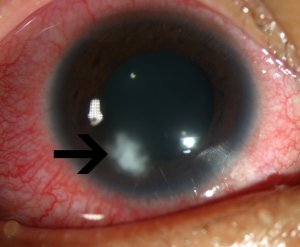Should we wear goggles when swimming?
Do you swim with or without goggles? Which way is better? Well, here is my medical point of view:
Redness and Irritation
Swimming without protecting your eyes from the water can result in redness and irritation. The reason redness and irritation occurs is due to the pH levels in the pool. If the pH is too high, the chlorine in the water won’t be able to disinfect properly and keep both the pool and the water clean. If pH is too low the pipes in and around the pool will corrode. When the pH level is perfect it will help prevent eye discomfort and help with disinfection. Unfortunately, the perfect pH range is very small and it is hard to control in pools that are very large. It is likely that the chemicals won’t be exactly as they should be and you will experience redness and irritation if you don’t protect your eyes while in the pool.
While pool staff may be seen each morning skimming off debris such as leaves and bugs, the real threat – bacteria – is hidden beneath the surface. Sweat, urine, mucus, saliva, hair, dead skin and faecal matter – not to mention sun cream, perfume and cosmetics – are among the pollutants introduced by swimmers into pools.
Failure to properly clean the pool can trigger stomach upsets, ear and eye infections. There can be any one of 30 different bugs in a swimming pool. Cryptosporidium and E.coli, both of which can cause vomiting and diarrhoea, are caused by faecal material. Some pools can harbour a bacterium called Pseudomonas aeruginosa, which is responsible for skin and ear infections. Another harmful bug, Acanthamoeba, can attack the surface of the eye, causing painful inflammation.
Never Swim with Contact Lenses on
If you swim with your eyes open and wear contacts, chances are good that they will fall out and be lost. Finding a contact on land is hard but in the water it is almost impossible. If you wear contacts in the pool and lose them you won’t be able to see when you are out of the water either. Some people try to swim with their glasses on, but this still doesn’t protect your eyes from the chemicals in the pool. If you worry about not being able to see without glasses or contacts but want to see while in the pool, consider prescription goggles.
In addition, swimming with contact lenses on increases the chances of eye infection. Read my other post on common mistakes when using contact lenses.
Poor Vision
When you swim with your eyes open you may experience poor vision while underwater. If you want to be able to see better while underwater, goggles are important. Goggles protect the eyes and permit you to keep your eyes open during your entire swim without any other problems.
With the above in mind, it would be advisable to wear goggles to swim in order to prevent eye infection and irritation of the eye and to have better vision while swimming. Most competitive swimmers choose to wear goggles to avoid the effects that swimming with your eyes open can have. Anyone spending an extended period of time in the water should protect them with goggles.
Some swim coaches prefer their students to learn swimming without goggles as they feel that a person should be able to swim in an emergency setting where goggles are not available. What is your experience? Did you have a bad experience using goggles when swimming or was it when you swam without goggles?



Are prescription goggles very expensive to buy? It’s a shame that you can’t get goggles that fit over your glasses frames like you can with skiing goggles!
Prescription goggles are not expensive and are available in many retail outlets that sell sports equipment and apparel.